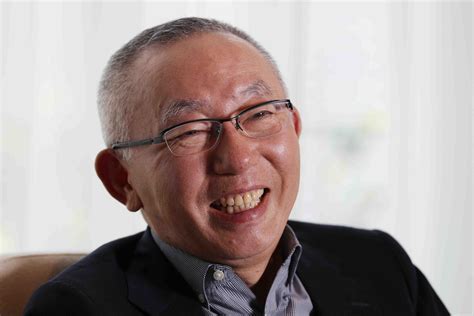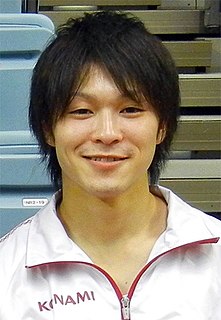A Quote by Tadashi Yanai
Japan has only 100m people. Asia has 4bn. At least one-third, maybe nearly half, will become middle class, and this is a big opportunity for Japanese businessmen.
Related Quotes
The typical big Japanese company has somewhere between a third and 40 percent of its revenues coming from developing countries, and about a third of Japan's exports are also to the emerging countries, so in a strange way, Japan, which has very little internal growth, its big companies are a good way to play the emerging markets.
I have learned that I, we, are a dollar-a-day people (which is terrible, they say, because a cow in Japan is worth $9 a day). This means that a Japanese cow would be a middle class Kenyan... a $9-a-day cow from Japan could very well head a humanitarian NGO in Kenya. Massages are very cheap in Nairobi, so the cow would be comfortable.
We can't attribute a long history of democratic traditions to Japan, either, but today Japan boasts a fully-fledged democracy in which governments change according to democratic procedures. It's no coincidence that the Taiwanese, Japanese, and South Korean economies are among the most innovative in Asia.
The government decides to try to increase the middle class by subsidizing things that middle class people have: If middle-class people go to college and own homes, then surely if more people go to college and own homes, we’ll have more middle-class people. But homeownership and college aren’t causes of middle-class status, they’re markers for possessing the kinds of traits — self-discipline, the ability to defer gratification, etc. — that let you enter, and stay, in the middle class. Subsidizing the markers doesn’t produce the traits; if anything, it undermines them.
The third class consists of men to whom nothing seems great but reason. If force interests them, it is not in its exertion, but in that it has a reason and a law. For men of the first class, nature is a picture; for men of the second class, it is an opportunity; for men of the third class, it is a cosmos, so admirable, that to penetrate to its ways seems to them the only thing that makes life worth living. These are the men whom we see possessed by a passion to learn.
Be more attentive to what successful people have to say about all the opportunity around you. Anything important - which takes only two minutes to point out - will exceed most people's attention span by at least a minute and a half. Learn to pay attention for two minutes at a time - and you will see more opportunity than you know what to do with.



































